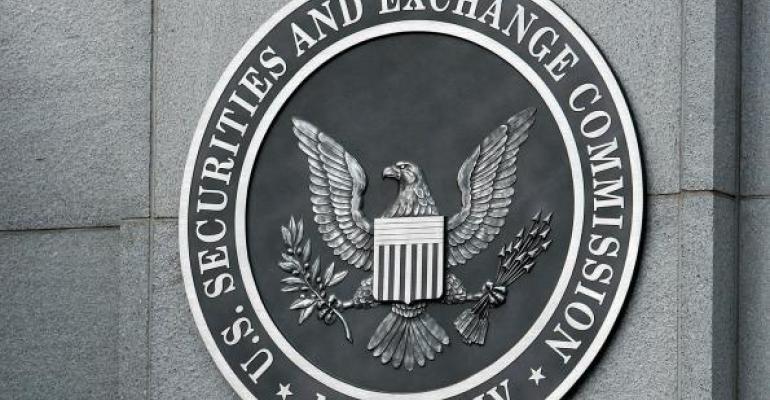The Securities and Exchange Commission settled charges with six investment advisory firms and six broker/dealers, alleging they did not deliver their Form Customer Relationship Summaries to clients on time; some also didn’t include information required by the SEC, the regulator said.
The new fines follow the SEC’s Enforcement Division’s actions against 27 firms last July for failing to “timely file and deliver” their Form CRS; those settled charges marked the first enforcement actions brought after the requirement for the customer relationship document went into effect alongside Regulation Best Interest in June 2020.
This week’s actions brought the total number of actions against firms for CRS lapses to 42, according to SEC Enforcement Division Deputy Director Sanjay Wadhwa.
“We urge firms that continue to be delinquent in fulfilling their Form CRS obligations to come into compliance with the law and to self-report to the SEC,” Wadhwa said.
According to the SEC, all of the 12 firms failed to deliver their Form CRS to prospective and new clients by June 30, 2020, to existing retail clients a month later, and also failed to “prominently post” their current Form CRS on their website, if applicable; in some instances, firms did not file or deliver a form until after they were contacted by the SEC, in some cases finally doing so more than a year after implementation.
In some cases, the commission alleged firms failed to include information necessary to satisfy Form CRS requirements, though the actions do not specify what information was lacking.
Of the six advisory firms charged, four range between about $135 million and $184 million in assets under management, with Stone Run Capital managing $316 million in assets and Personal Financial Planning managing about $896 million. The 12 firms are located throughout the country, with three based in New York City and several in California, Michigan and Georgia.
The civil penalties were mostly in the low-to-mid five figures, with five firms ordered to pay $25,000, two ordered to pay $15,000 and four ordered to pay $10,000. However, Wall Street Access, a New York-based b/d, was ordered to pay $97,523.
To Kurt Wolfe, an attorney in the SEC Enforcement Practice at the law firm Quinn Emanuel Urquhart & Sullivan, Wadwha’s language suggested that for “some period of time,” the commission would take a relatively light touch with the severity of the penalties it levied. But he also argued the enforcement actions were an indication that the SEC was reaching the end of its patience on firms’ failure to comply with filing deadlines, and urged firms not to test the SEC.
“(They’re saying) ‘if we come to you, don’t expect a light touch,’” Wolfe said. “‘But here’s your chance. Come to us if you think you have a problem.’”
In addition to the July 2021 actions against 21 investment advisors and six b/ds, the SEC’s Enforcement Division also fined a $391 million AUM Syracuse-based firm and an $81 million New York-based firm for similar conduct in October of last year. Like those examples, the firms named this week didn’t admit or deny the commission’s findings, but agreed to the civil penalties, as well as censures and cease-and-desist orders.
According to Ben Edwards, a professor at the William S. Boyd School of Law at the University of Nevada, Las Vegas, charging firms with a failure to deliver the documents on time is an easy case for the SEC to bring, as it requires little resources on the part of the regulator.
“You can describe this as low-hanging fruit. In some sense, this fruit isn’t even hanging on the tree,” he said during a Tuesday panel sponsored by the Institute for the Fiduciary Standard. “It’s lying on the ground."





